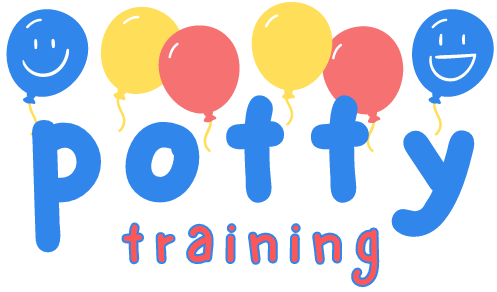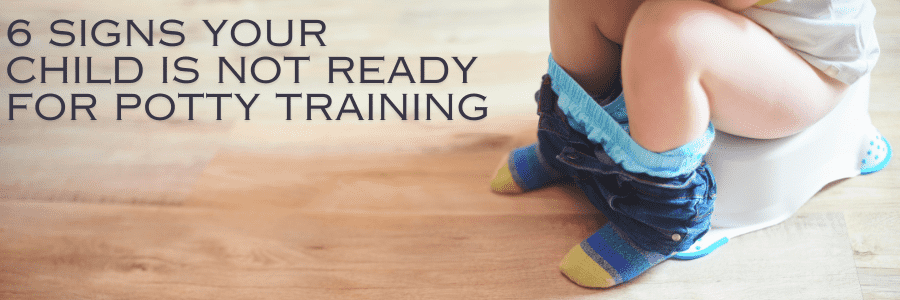Potty training is a big deal in a kid’s life. It’s like their first step towards being a big kid and using the toilet all by themselves. But you know what? Not every kiddo is ready to take that leap at the same time. So, figuring out if your little one is up for potty training is super important. That’s where I come in! In this article, I’ll help you spot the signs your child is not ready for potty training yet. From not being interested to straight-up saying “no” to the potty, we’ll cover it all. So, buckle up, and let’s dive into each sign to make sure you’re all set for the potty training journey!
Table of Contents
Understanding Signs Your Child is Not Ready for Potty Training

Ready, Set, Go! Exploring Potty Training Readiness
Potty training readiness refers to the developmental stage at which a child demonstrates the physical, cognitive, and emotional capabilities necessary for successful toilet training. While there is no set age for potty training readiness, most children show signs of readiness between the ages of 18 months and 3 years.
Key Milestones for Potty Training Readiness:
- Can your child tell you when they need to go potty?
- Do they know when they’ve gotta go?
- Can they take off their clothes and sit on the potty all by themselves?
- Are they excited to give potty training a try?
Understanding these milestones is essential for assessing your child’s readiness for potty training. It’s important to remember that every child develops at their own pace, and readiness may vary from one child to another.
Common Misconceptions About the Ideal Age for Potty Training
One big misunderstanding about potty training is thinking that every kid should be ready at the same age. But guess what? It’s not about the numbers! Potty training readiness isn’t just about how old your child is. It’s more about looking at all the different ways they’re growing and learning.
Some kids might be all set to start using the potty when they’re just 18 months old. But for others, it might take until they’re 3 years old or even older. So, parents, don’t stress about the numbers on the calendar. Instead, keep an eye out for the signs that your child is really ready to give potty training a shot.
Signs your child is not ready for potty training
1: Lack of Interest or Awareness

Identifying Lack of Interest in Potty Training
Lack of interest in potty training can manifest in various ways, such as showing disinterest when discussing the topic, avoiding the potty altogether, or expressing discomfort with using it. I noticed that my child would quickly change the subject whenever I brought up potty training, and would often resist sitting on the potty chair.
Developing Interest and Awareness in Potty Training
To address this, I tried to make potty training more engaging and appealing for my child. I introduced books and videos about potty training, made a special trip to pick out a fun potty chair together, and incorporated positive reinforcement techniques, such as stickers or small rewards for trying.
Importance of Following Your Child’s Cues and Respecting Their Pace
It’s important to remember that every child is unique and may approach potty training differently. By following my child’s cues and respecting their pace, I was able to create a more supportive and encouraging environment for them to explore potty training at their own comfort level.
2: Inability to Communicate Needs

Recognizing Communication Barriers in Potty Training
Communication barriers can hinder a child’s ability to express their bathroom needs effectively. As a mother, I experienced this firsthand when my child struggled to articulate when they needed to go potty or couldn’t communicate discomfort with a wet or soiled diaper.
Tips for Enhancing Communication Between Parents and Children During Potty Training
To overcome this challenge, I focused on improving communication between my child and me. I encouraged my child to use simple words or gestures to indicate when they needed to use the potty and praised their efforts when they made attempts to communicate their needs.
Alternative Methods for Gauging Readiness in Non-Verbal or Shy Children
For children who may be non-verbal or shy, alternative methods such as observing their body language or establishing a routine for potty breaks can be helpful. By paying attention to subtle cues and being patient, I was able to better understand my child’s needs and support them in their potty training journey.
3: Resistance or Fear Toward the Potty

Dealing with Potty Training Resistance and Fear
Resistance or fear toward the potty is a common challenge many children face during the potty training process. I also encountered moments when my child would cry or become anxious at the sight of the potty, making it clear that they were not comfortable with the idea of using it.
Understanding Common Reasons for Potty-Related Fears or Resistance
To address this, I took the time to understand the root cause of my child’s resistance or fear toward the potty. It could be due to a variety of reasons, such as fear of falling in, discomfort with the sound of flushing, or feeling overwhelmed by the transition from diapers to the potty.
Tactics for Addressing Fears and Building Positive Associations with the Potty
To help my child overcome their fear or resistance toward the potty, I employed gentle and supportive approaches. This included introducing the potty as a fun and exciting new tool, allowing my child to explore it at their own pace, and reassuring them that it was okay to take small steps towards using it.
Importance of Patience and Gradual Exposure to Overcome Resistance
Parents need to approach potty training with patience and understanding, especially when faced with resistance or fear from their child. By offering support, encouragement, and gradual exposure to the potty, parents can help their child feel more comfortable and confident in the potty training process.
4: Inconsistent Bowel or Bladder Control

Checking if Your Kiddo’s Got Control Over Their Poop and Pee for Potty Training
Inconsistent bowel or bladder control can be a significant signs your child is not ready for potty training. Being a mom, I observed moments when my child would have accidents frequently throughout the day, indicating that they may not have developed full control over their bladder or bowel movements.
Signs Indicating Your Child May Not Have Developed Full Control Over Elimination
Signs of inconsistent bowel or bladder control include frequent accidents, difficulty holding urine or stool for extended periods, and unpredictable patterns of elimination. These signs suggest that a child’s body may not be fully prepared for the demands of potty training.
Developmental Milestones Related to Bowel and Bladder Control
Parents need to be aware of the typical developmental milestones related to bowel and bladder control. These milestones can vary from child to child but generally include the ability to stay dry for longer periods, recognize the sensation of needing to go and communicate their bathroom needs effectively.
Techniques for Supporting Bladder and Bowel Control Development
Parents can encourage healthy bathroom habits, such as regular bathroom breaks, staying hydrated, and consuming fiber-rich foods to support bladder and bowel control development. Additionally, practicing relaxation techniques, such as deep breathing or gentle massage, can help children learn to relax their pelvic muscles and improve control over elimination.
5: Lack of Motor Skills or Coordination

Evaluating Motor Skills Readiness for Potty Training
Lack of motor skills or coordination can pose challenges during potty training, as children need to be able to undress and sit on the potty independently. I noticed that my child struggled with tasks such as pulling down their pants or climbing onto the potty without assistance.
Motor Skills Required for Successful Potty Training
Motor skills required for successful potty training include undressing and dressing independently, balancing while sitting on the potty or toilet, and coordinating movements to wipe effectively. Children lacking these skills may find it difficult to navigate potty training.
Activities to Improve Motor Skills and Coordination for Potty Training
To help my child improve their motor skills and coordination, I incorporated activities that focused on strengthening their fine and gross motor skills. This included practicing buttoning and zipping clothing, playing games that require balance and coordination, and encouraging outdoor play to develop gross motor skills.
6: Regression or Lack of Progress

Dealing with Going Backwards and Not Moving Forward in Potty Training
Regression or lack of progress in potty training can frustrate parents and children. I experienced moments when my child seemed to be making progress with potty training, only to suddenly revert back to old habits or show little improvement over time.
Recognizing Signs When Potty Training Isn’t Going Forward Like It Should!
Signs of regression or pause in potty training progress include frequent accidents after a period of success, refusal to use the potty despite previous willingness, or showing signs of frustration or distress during potty training sessions. These signs may indicate that a child is struggling with aspects of the potty training process.
Strategies for Troubleshooting Common Challenges and Setbacks
To address regression or lack of progress in potty training, parents need to identify and address any underlying issues that may be contributing to the setback. This may involve reassessing readiness cues, adjusting the potty training approach, or seeking support from pediatricians or child development specialists.
Seeking Support from Pediatricians or Child Development Specialists When Needed
If parents are struggling to address regression or lack of progress in potty training, it’s important to seek support from healthcare professionals who can provide guidance and assistance. Pediatricians and child development specialists can offer valuable insights and strategies for overcoming challenges and achieving success in potty training.
Conclusion
In conclusion, recognizing the signs your child is not ready for potty training is essential for setting realistic expectations and ensuring a positive experience for both parent and child. By understanding the signs of potty training readiness, addressing challenges with patience and support, and seeking guidance when needed, parents can navigate the potty training journey with confidence and success.
FAQs
- At what age should I start potty training my child?
- Answer: Potty training readiness varies for each child, but most children show signs between 18 months and 3 years old. It’s essential to look for readiness cues rather than focusing solely on age.
- What if my child shows some signs of readiness but not all?
- Answer: It’s common for children to show readiness in some areas but not others. In such cases, you can start introducing potty training gradually and observe how your child responds. Patience and flexibility are key.
- How long does potty training typically take?
- Answer: The duration of potty training varies for each child. Some may grasp the concept quickly, while others may take longer. On average, it can take several weeks to several months for a child to become fully independent with potty training.
- What if my child regresses after making progress with potty training?
- Answer: Regression is common during potty training, and it’s essential to remain patient and supportive. Identify any potential triggers for regression, such as changes in routine or stress, and address them accordingly. Consistency and positive reinforcement can help your child get back on track.
- Should I punish my child for accidents during potty training?
- Answer: Punishment is not recommended during potty training, as it can create negative associations with the process. Instead, focus on positive reinforcement, praise your child for their efforts, and provide gentle guidance and encouragement.
- When should I seek professional help for potty training challenges?
- Answer: If you encounter significant challenges or your child shows signs of distress or anxiety related to potty training, it may be beneficial to seek advice from a pediatrician or child development specialist. They can offer guidance tailored to your child’s specific needs.

